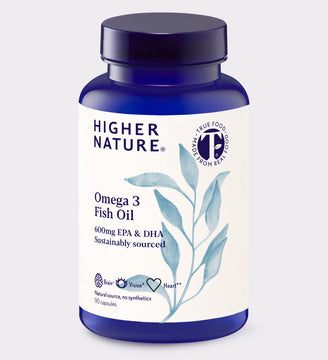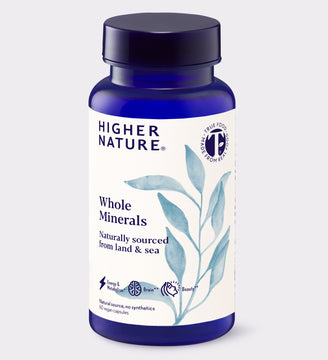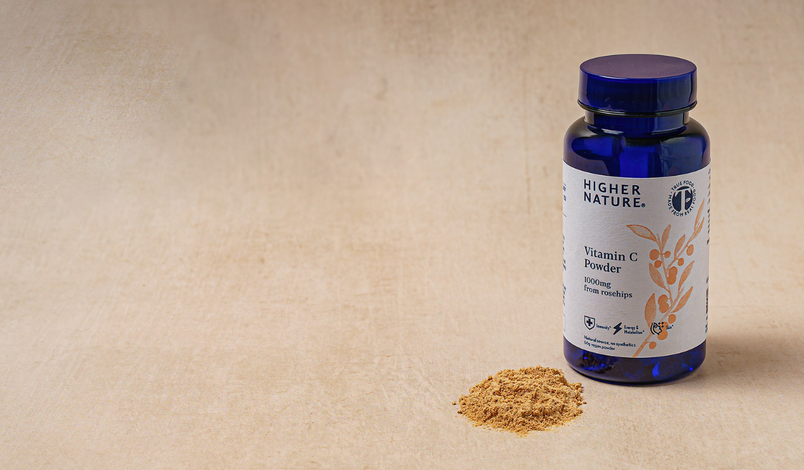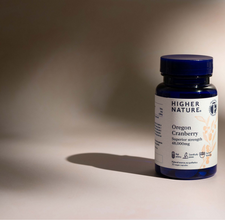
Help end the pain of Migraine
Elizabeth Houston - Higher Nature Nutritional Therapist - Dip BCNH mbant mCNHC
A migraine attack can seriously ruin your day and for some it can last for almost a week. The medical community are a bit baffled when it comes to the reason some of us suffer from migraines and what the underlying causes are. Although we do know genetics, hormonal and environmental factors appear to play a role. Since I have personal as well as professional experience of the suffering that migraines cause, I’m always on the lookout for solutions. Here is a summary of some of the things I’ve learnt.
What makes a migraine different from a headache?
The biggest misconception about migraines is that they are ‘a bad headache’, if you have never experienced one consider yourself lucky. A migraine is intense head pain that usually throbs either behind the eyes or on one side of the head. It is often accompanied by sensitivity to bright lights and noise, nausea and vomiting. Some people also experience an aura, this refers to a sensation before the migraine strikes such as seeing flashing lights, having a foggy feeling or a different taste in the mouth.
The problem dealing with migraines is that there is often not one trigger but a combination of triggers that accumulate, for example you may be ok after a late night, or happily eat certain trigger foods one day, but a combination of both along with, say a stressful day, might tip you over the edge into a full-blown migraine attack. Sticking to a routine for sleep, meals etc can really make a noticeable difference.
When discovering what are potential causes for you, using a symptom diary can be invaluable, keeping a diary of sleep patterns, stress levels (out of 10), food etc can help you look back and learn more about your unique triggers.
Here are my tips:
Stick to a sleep routine. This is a big one for many people. Try and stick to a regular sleep pattern, getting to bed and waking up at the same time or as close to as possible every day. Missing sleep, getting too much sleep or jet lag can all trigger attacks.
Stay hydrated! Dehydration is an issue for many migraine sufferers so stay topped up with water, although don’t over hydrate either! About 2 litres is right, more if doing exercise or on a hot day. Some drinks can also be a trigger for some. These include alcohol, especially red wine, and too much caffeine, such as in cola hot chocolate or coffee.
Anything that causes Sensory stimuli such as bright lights, flickering of television screens and sun glare can induce migraines. Try to have regular screen breaks. Also, look out for other stimuli such as strong smells (like those found in perfume and paint) and continuous loud noise.
Avoid trigger foods these vary from person to person so keeping a daily food diary is useful. The most common food triggers are cheese, chocolate, citrus, salty and processed foods. Food additives including the sweetener aspartame and the preservative monosodium glutamate (MSG), found in many foods, are a common trigger. Skipping meals or fasting is also a trigger due to a drop in blood sugar.
Reduce stress. Stress and emotional upset are well-known causes for both headaches and migraine attacks so taking steps to prevent or reduce stress/tension can make a big difference. Simple steps can help, such as a bath at the end of the day, yoga or whatever works for you!
Manage hormonal changes in women. Fluctuations in oestrogen can be a factor and can result from menstrual periods, pregnancy and menopause. If you feel hormones may be a factor for you, you can contact our nutrition team for further support.
Eat magnesium rich foods. Studies have found that migraine sufferers are more likely to have low levels of magnesium and adding magnesium either through diet or supplements can be helpful. Magnesium contributes to normal muscle function particularly useful if tension is a factor for your migraines. Foods high in magnesium include avocados, nuts, legumes, tofu and leafy green vegetables.
Try Feverfew a traditional herb when taken regularly it is helpful for the prevention and reducing the frequency of migraine attacks.
Co-Enzyme Q10 (CoQ10) has been shown to reduce migraine attacks (and other headaches). CoQ10 is a vitamin like substance found in every cell of the body.
References
Ramadan NM, Halvorson H, Vande-Linde A. Low brain magnesium in migraine. Headache. 1989;29:590–593.
Sanam Dolati , Reza Rikhtegar Amir Mehdizadeh Mehdi Yousefi The Role of Magnesium in Pathophysiology and Migraine Treatment Biological Trace Elem Research 2020 Aug;196(2):375-383.
TD Rozen, ML Oshinsky, CA Gebeline, KC Bradley, WB Young, AL Shechter & SD Silberstein. Open label trial of coenzyme Q10 as a migraine preventive. Cephalalgia, 2002, 22, 137–141.


















